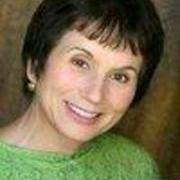Hundreds of people have asked me why someone develops an eating disorder. Of course many issues are involved, but from my exploration of this field over the years, I have concluded that there is one outstanding theme that runs through every person with an eating disorder whom I have encountered.
Early in their lives, people with eating disorders have experienced, on a sustained basis, relentless boundary invasion on every level.
When their physical, emotional, psychological, intellectual, sexual, and creative boundaries are consistently ignored and penetrated, people experience total boundary invasion. With no control and no way to end, protest, or, often, even acknowledge such invasions, these persons feel helplessness, despair, and a certainty that they are worthless to themselves or anyone else.
The consequences of such total invasion are vast. One consequence is an eating disorder. Having had so many boundaries disregarded, a person has no knowledge or skills in recognizing or honoring boundaries herself. She will eat or starve for emotional relief.
She may eat vast amounts of food for comfort value alone. She may deprive herself of food until her life is in danger. She has no internal regulator that tells her when she has reached her limit and experienced enough. Being oblivious to any boundaries means being oblivious to limits of any kind.
The compulsive overeater eats whenever and whatever she likes. She bases her choices on self-medication issues, not feelings of physical hunger.
The anorexic will not eat. There is no limit to her not eating. She will starve herself to death in search of relief from her emotional pain. She knows nothing of the experience of having enough. She couldn't say, "Enough," to an invader of her boundaries, and she can't say it to herself. The concept of enough has no meaning to her. She often feels that if she "disappeared," she might find some permanent relief.
I have heard countless anorexic young women talk ethereally, with a lost-in-a-beautiful-world-of-angels smile, of how wonderful it would be to become a vapor or a light dancing spirit in the clouds. Ah, such spiritual bliss, they imagine. In reality, it's the final self-protective act, to destroy their bodies and their lives completely. Then they can truly escape the complexities of being alive.
The bulimic will binge grotesque amounts of food. She will assault herself with more food than her body can tolerate.
The compulsive overeater will, at last, have to stop eating if only because of the pain in her distended stomach. Her body sets a final limit. The bulimic has no such limit. She experiences (in her mind) no consequences of the food assault on her body. When her body cannot bear more, she will vomit it all out. Then she will resume her binge. She may reach her body's limits many times. Each time she does, she can throw up again and continue.
Eventually she stops, because she is completely exhausted, or she is in danger of being discovered. "Enough" has no meaning to her. There are no limits and no consequences for her disregard of her boundaries.
Realistically, of course, there are plenty of consequences. Her behavior inflicts serious damage to her body. And each time she attacks herself with a binge-and-purge episode, she destroys more of her spirit, soul, self-esteem, sanity, health, and value to herself and others.
Each violation deepens her ritualistic behavior, and she becomes more entrenched in her disorder. The consequence is increasing anguish and despair. Yet the eating disorder is not the cause of that anguish and despair. The eating disorder exists to numb her from her already existing psychological agonies.
For a while, maybe a few years, the eating disorder successfully blocks her awareness of pain too difficult to bear. But eventually the protective device of the eating disorder becomes just another boundary invader, this time self-induced, that weakens and damages her even more.
What do I mean by a history of boundary violations? Blatant and extreme boundary violations involve sexual molestation, sexual abuse, and physical abuse. Much has been written about these areas now, especially in material exploring Post Traumatic Stress Disorder (PTSD) and Dissociative Identity Disorder (DID). Use your search engines to find some quality information posted on the Internet in these subject areas.
However, there are other kinds of boundary violations, and these are less dramatic, less discussed, more prevalent, and just as devastating to a persons psyche. When, in the name of caretaking, people in authority take over a young person's life, it constitutes boundary invasion.
When others deny her privacy, read her diary, borrow or take her things without permission, or use their ideas or goals or personalities to overwhelm her efforts in school or sports, that is a violation of her boundaries.
When others disregard or disdain her choices or deny her any control over her personal life, clothes, food, friends, and activities, they are invading her boundaries.
An invasion of boundaries also takes place when, in the name of caretaking, people give her no responsibilities of her own and attach no consequences to her actions. When the child or adolescent can have all the things she asks for without putting forth effort to earn such gifts, she learns nothing about personal effort, limits, consequences, or the meaning of enough. If she wants something, she gets it. That's all. If someone picks up her clothes, does her laundry, fixes her car, pays her bills, lends her money or things without expecting them returned, she experiences no boundaries and no limits.
If she doesn't have to keep her promises, if she doesn't reciprocate with caring actions for people who care for her, she learns nothing useful about herself in relationship to other people. The only thing she learns with certainty is that there are no limits to her behaviors or desires.
These boundary invasions are not loving acts, nor are they "spoiling" a child through overindulgence. Quite the contrary, they are acts of neglect. The child's taste, mind, capacity to learn, and ability to grow and function as an independent agent in the world remain unacknowledged.
When others, even well-meaning others, ignore her identity as a unique, developing, and competent individual and flood her with their personal agendas, she feels as if a steamroller had flattened out her psyche. She may learn to please, to manipulate, to compete, or to control, but she is unable to learn to be fully present in the world as her genuine self.
She doesn't learn that she has meaning and value. She doesn't learn that she can put that meaning and value within her to work to accomplish goals.
For example, if she breaks something, whether it is a lamp, a car, her word, or someone's heart, it is possible and healthier to give her the responsibility for making necessary repairs using her own resources and her own creativity. In such a process, she learns what effort means. She learns what responsibility and consequences for actions mean. She learns reasonable limits and reasonable expectations. She develops resources to make healthy and caring decisions in the future.
Without such lessons, she learns are the tricks involved in adapting quickly to the expectations of others or being manipulative to get what she wants. These are poor and insubstantial tools to rely on when building an adult life.
Somewhere inside, over time, she may gradually realize this. But without a sense of boundaries, she will only become bewildered and anxious. She will accelerate her practice of using her eating disorder as a way to numb her feelings of anxiety. She will use her manipulating skills to get what she wants from whomever she can exploit.
As time passes, fewer people in her life will allow themselves to be manipulated. The quality of her circle of associates will decline as she seeks people she can control with her inadequate methods of functioning in the world. She will find herself in bad company.
This becomes all the more reason to rely on eating disorder behaviors for comfort. The people around her are less reliable all the time. And finally, they tolerate her presence only because they can manipulate her.
She arrives at the total-victim position. Her manipulative skills backfire. People exist in this world who are better at manipulating and using than she. She has found them. She becomes their target and then their prey. Her dependence upon her eating disorder becomes her most valuable and trustworthy relationship.
Early in her development, she learned through massive boundary invasions (which perhaps seemed ordinary and unimportant at the time) that she was helpless to assert herself. She learned that she had no private or sacred space to cherish and respect. She could not acknowledge, even to herself, that she was being thwarted, invaded, controlled, manipulated, and forced to deny large aspects of her natural self. She had no recourse except to comply.
To succeed at being unaware of her natural tastes, curiosities, and inclinations and her pain in restraining her natural tendencies, she developed an eating disorder. Now that she's older and her manipulation skills are failing her, she only has her eating disorder to rely on. This may be the most crucial time in this person's life.
If her pain and despair are terrible enough and she is certain she cannot bear this way of living anymore, she still has choices. She can continue to rely on the eating disorder and by so doing take the path to self-destruction. Or she can reach out and get help.
This is a tough position for her. She's never known what enough was. Yet to choose to get help, she has to recognize that she has had enough pain. She's never known what a limit is. Yet she has to recognize that she has reached her limit and must choose between death and life. She has only known about pretense and manipulation. Yet she has to be honest to reach out for genuine help.
She feels massive anguish and pain before she stretches beyond her life pattern into what might bring her healing and recovery. She's reaching for something she can't imagine. It's difficult for a person with an eating disorder to decide to get help. She would have to allow herself to trust someone with knowledge of her real personhood.
She doesn't yet know that people who do respect and honor boundaries actually exist in this world. She doesn't yet know that there are people who can and will honor and cherish her most private and sacred inner spaces. She doesn't yet know that someday the trustworthy, respectful, steadfast, and competent caretaker she needs so badly can be herself.
Her first move toward recovery requires all the courage she can muster. Her recovery begins when with fear or rage, she rallies her courage to reach out for help.
Difficult, yes. But what she doesn't know yet is that she has been courageous all her life. She makes a grand discovery when she learns that she can apply her strength and courage to her own health. She can use her gifts to, at long last, be free of her eating disorder, be her genuine self in the world.
Professional Resources for Finding Help
Academy for Eating Disorders (AED)
American Anorexia and Bulimia Association (AABA)
Anorexia Nervosa and Related Disorders (ANRED)
Edreferral.com
International Association of Eating Disorders Professionals (IAEDP)
Joanna Poppink's Eating Disorders Resource List In-Patient Treatment Programs
National Eating Disorders Association (NEDA)
Joanna Poppink, Los Angeles psychotherapist, licensed since 1980 (MFT #15563), is deeply committed to bringing recovery to people suffering from eating disorders.
Her specialized psychotherapy practice is designed to allow clients to progress through anxiety situations to ongoing recovery from bulimia, compulsive eating, anorexia and binge eating. Her primary goal is to provide people with a way to achieve thorough and long lasting healing.
Eating Disorder Recovery book in progress through Conari Press
10573 West Pico Blvd. #20
Los Angeles, CA 90064
http://www.eatingdisorderrecovery.com
[email protected]





Add a Comment206 Comments
Joanna,
I am a parent whose daughter developed restrictive-AN beginning at age 9 and who has reached recovery after two years. I understand that you deal with adults, many of whom are not anorexic, but who may have food issues such as bulimia, over-eating, etc. You yourself are a recovered bulimic, to which I say congratulations on the hard work it must have been!
Seeing my young daughter fall into the pit of anorexia after suffering strep throat and then learning of the direct connection between strep and brain diseases such as anorexia, OCD, tics and anxiety, I think I see eating disorders more from the biological side. My daughter is in a loving, very balanced family. Our young son does not suffer from an eating disorder and yet is living in the same family. There are genetic and biological brain changes that are a major part of eating disorders, just as there are for autism and schizophrenia. Do family dynamics trigger an eating disorder? Probably in some cases, yes. But as Bob points out, there really is no one known trigger for eating disorders and how temperament and genetics interact is a key component that needs to be acknowledged. It is complicated, scary, and confounding, but we need to be open to the fact that even the experts do not know the absolute cause of eating disorders. I think having an open mind to all possibilities, without placing blame, is the best place to start helping sufferers recover.
June 6, 2009 - 7:02pmThis Comment
.
Joanna wrote :
"In your post you refer to a population of families I and other clinicians may never see. It's possible and probable that more exists than what comes through our offices for treatment....for example, [I] only work with adults who are affected by an eating disorder..."
I posted a link to your artical on the Parents board of Something-Fishy, and there is a discussion going there as well.
One of the things I mentioned in that conversation is the possiblity that, just as you have implied, some kind of screening may be at work ( perhaps you present yourself as working with truama issues as well ?) and as a result you may indeed see a high percentage of clients with the very same issues you mention. Heaven knows that such issues do exist, and that just as you contend, childhood family issues are often the cause.
However, as you might expect, these contentions are, in general, not playing very well on the Parents board. But my guess is that some of the same sort of selecton/screening process may be going on there as well. In that parents who may have indeed been detached, cold or neglectful are not likely to be joining Something-Fishy. Nor are they likely to show up here to validate the contentions in your artical.
I know for a fact that people with EDs come from all sorts of various backgrounds, from the horrifically abusive to the concientious and loving. When one agknowedges this range of variation, the role of genetically determined temprament as it plays out in sensitivity/reactivity would seem to be an important one.
What I mean is....I believe there is a valid place for all positions within this discussion.
PS. Bob waves an old-time hello to Laura. :- )
June 6, 2009 - 6:41pmThis Comment
Joanna,
In an effort to help another parent with their child's recovery, I once posted these questions seven that every parent should ask a therapist before they give them access to their child:
1. What do you think causes this illness?
2. Did you suffer from anorexia and if so, do you still have anorexic thoughts?
3. What "issues" do you deal with in therapy? Have you found that there are common issues that you deal with in your ED patients?
4. What role do you believe the parent plays in recovery? How would you define recovery?
5. Have you heard of Maudsley? What is your experience with it?
6. Have you looked at Walter Kaye's research on Anorexia and if so, what do you think of it?
7. What books do you recommend to parents? to sufferers?
It was my contention that everything you need to know about whether the therapist would help or harm your child could be discovered if these questions were answered truthfully. I'm curious how you would respond to them.
Cheforexic
June 6, 2009 - 5:40pmThis Comment
"My lifework is dedicated to eating disorder recovery. My own experience with bulimia, long before it had a name, and my recovery journey deeply informs my work with others"
From her personal website:http://www.eatingdisorderrecovery.com/aboutjoanna.html
Telling don't you think?
June 8, 2009 - 1:35pmThis Comment
Cheforexic, thank you so much for that list of questions.
Very good!
It is so important for parents and those who suffer from eating disorders to realize that there are "professionals" who can do them so much more harm than good.
With the questions that you offer, one can at least try to attempt to prevent exposing a loved one or oneself to toxic therapists.
Bravo!
June 6, 2009 - 8:40pmThis Comment
Dear Cheforexic,
Thank you for these questions. I'm sure many people will find them of interest.
My work is with adults. I don't see children in my practice. I have learned that eating disorder recovery is best undertaken with a clinician who specializes in the field.
Working with adolescents and younger children are specialized fields in themselves.
I refer parents who call for treatment for their children to clinicians who have expertise in both adolescents and eating disorders or expertise in both younger children and eating disorders.
If you would like to share how you came to create this list of questions and what effect it has had on others, I welcome your contribution.
best regards,
Joanna
June 6, 2009 - 6:12pmThis Comment
I would add that maybe, just maybe the adult patients that you see are so enmeshed with their illness, that they themselves are looking to place blame. Their brains are so twisted by chronic malnutrition, and their clinicians are so willing to accept without question what these patients are telling them. "My mother controlled me. My father molested me." Maybe it is the ed talking, and not the real patient. The real patient is in there, being tortured by ed. The patient who could be helped -- not by being told to "choose" to get better, or to follow 12 steps -- but by being fed, lots of food, consistently, week after week, and supported until his or her brain heals. Who can do this best -- a clinician who sees the patient once a week? Or someone who lives with the patient and truly loves them...
Erica
June 6, 2009 - 4:24pmThis Comment
Dear Erica,
Thank you for contributing.
Please know that the patients I see in a private practice are required to have a medical check before we work together. If anyone is at physical risk because of low weight or suffers from any kind of malfuction because of nutritional deprivation I refer them to in-patient treatment. Private practice is not equipped to work with people at medical risk. Such persons need to receive medical care, ongoing psychological treatment and, as you say, food. They need to be healthy enough to be able to work through the considerable cognitive and emotional challenges they would face in psychotherapy.
Eating disorders cover a broad range of physical experience. Not all eating disorder patients are deprived nutritionally. Not all eating disorder patients are underweight. And certainly, not all eating disorder patients are children. My patients, for example are adults ranging in ages from 26 - 76.
Also, patients rarely, in my clinical experience, accuse their parents of being responsible for their eating disorder. Often parents, spouses, boy friends or girlfriends are afraid that they will be the focus of criticism in private therapy sessions. The fact that the work is confidential allows fantasies to develop in the people who are excluded from the details of the work itself.
Yes, Erica, I agree with you on this point. The symptoms of an eating disorder are not the person. The true identity of the person unfolds and blossoms when she or he is free of the eating disorder and learns to function in the world as a competent and substantial adult.
I appreciate hearing your views. You bring up more of the topic that needs to be included in this discussion.
What is your position in this field, Erica? Are you parent or family member of someone with an eating disorder? Have you suffered from an eating disorder yourself? Is your connection something else?
Please feel free to write again and share some of your story.
best regards,
Joanna
June 6, 2009 - 6:03pmThis Comment
I am just appalled at this information provided. Some of these boundary issues may be evident in some cases and maybe reach the attention of professionals because of a range of problems. There were no boundary issues in my now recovered two young adult children. My s had been successfully living away from home for 3 years when he became AN following glandular fever.
Our children were much loved, encouraged, bright and very independant children prior to their illnesses. If you believe what they said WHILST ILL you would think they were emotionally abused. Surely professionals can not trust what this ill malnourished brain is telling them even if the individual seems to believe it at the time. My D received 5 years of wasted traditional treatment whilst we backed off as advised and we watched her decline and attempt suicide.
Thank goodness for Mandometer and Maudsley who work together will loving families towards recovery. When oh when will professionals start working with families rather than adding to everyones trauma by blaming them.
I'd like to see you working with that mother who probably picked up her approach to her D whilst frightened and playing safe for fear of causing further harm. Have you sat there beside your child in intensive care? She needs guidance to provide the support she desperatly wants to give her D not being told she is the problem so go away. It is also often the case that those same behaviours do not trigger ED in children in other families.
It is heathier for everyone to have a loving supportive family whatever their age. Please move past the blaming (inappropiately) and everyone work together to refeed and renourish the individual. Then listen to what their well brain tells you and work with that.
June 6, 2009 - 4:23pmLinda
This Comment
It's also possible that the very pathology that you assume CAUSES the eating disorder actually RESULTS FROM the eating disorder.
I have a son that developed anorexia at age 11. There are no boundary issues in our family (and our therapist would back me up on that statement). We have a healthy, loving home. The anorexia came from a brain disorder, an illness. And it isn't anyone's fault.
We have used Maudsley methods to successfully refeed my son. There are indeed lingering issues that have resulted FROM the anorexia, but they do not predate his illness.
I am heartbroken that fault continues to be perpetuated.
Wendy
June 6, 2009 - 3:50pmThis Comment